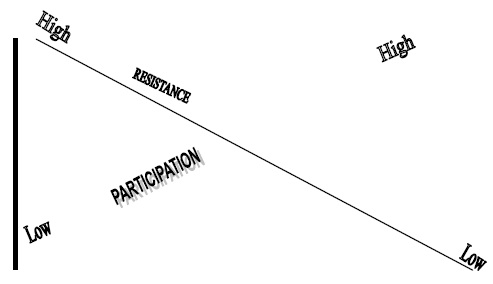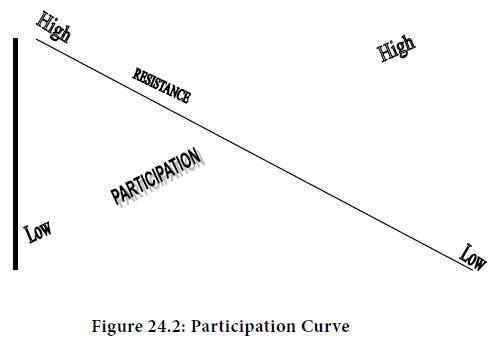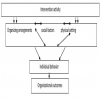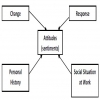Home | ARTS | Management Concepts & Organisational Behaviour
|
Management of Change - Organisational Change
Management Concepts & Organisational Behaviour - Organisational Change
Management of Change - Organisational Change
Posted On :

Organization at any given time is a dynamic balance of forces supporting and restraining any change.
Management of Change
Organization at any given time is a dynamic balance of forces supporting and restraining any change. The organization system is in a state of relative equilibrium. The current practice continues until the change is introduced. Change is introduced with in a group by increasing the supporting forces for it and/or reducing the restraining forces.
Strategies to build support to change: Chin and Benne describe three strategies managers commonly use in introducing organizational change:
Empirical – Rational Strategy: Managers acting as change agents must subscribe to the belief that people are rational beings and if they understand that the proposed changes will benefit them, they tend to accept change.
Normative – Reeducative Strategy: In this strategy, the belief is that people are guided by the socio-cultural norms they subscribe to. Hence, the change agent and those who will be influenced by the change should participatively and collaboratively plan and implement the necessary change.
Power – Coercive strategies: are used by the change agents assuming that people with less power will accept change brought by people with more power in the system.
Resistance could be to change itself, to the strategy to implement change, to the change agent or to the timing of change. Since there is no one best way of dealing with resistance to change in all situations, the following general approaches are used in handling resistance.
(i)Education and Communication: where there is a dearth of information or when inaccurate information is floating around, the change agent can discuss the change contemplated or apprise the employees about the logic of change and its attendant benefits. Once the employees are educated and enlightened about the positive aspects of change, they accept change.
(ii)Participation: Participation encourages commitment rather than mere compliance with change. Greater the participation, lesser the resistance to change. This is illustrated in the following figure.

Organization at any given time is a dynamic balance of forces supporting and restraining any change. The organization system is in a state of relative equilibrium. The current practice continues until the change is introduced. Change is introduced with in a group by increasing the supporting forces for it and/or reducing the restraining forces.
Strategies to build support to change: Chin and Benne describe three strategies managers commonly use in introducing organizational change:
Empirical – Rational Strategy: Managers acting as change agents must subscribe to the belief that people are rational beings and if they understand that the proposed changes will benefit them, they tend to accept change.
Normative – Reeducative Strategy: In this strategy, the belief is that people are guided by the socio-cultural norms they subscribe to. Hence, the change agent and those who will be influenced by the change should participatively and collaboratively plan and implement the necessary change.
Power – Coercive strategies: are used by the change agents assuming that people with less power will accept change brought by people with more power in the system.
Resistance could be to change itself, to the strategy to implement change, to the change agent or to the timing of change. Since there is no one best way of dealing with resistance to change in all situations, the following general approaches are used in handling resistance.
(i)Education and Communication: where there is a dearth of information or when inaccurate information is floating around, the change agent can discuss the change contemplated or apprise the employees about the logic of change and its attendant benefits. Once the employees are educated and enlightened about the positive aspects of change, they accept change.
(ii)Participation: Participation encourages commitment rather than mere compliance with change. Greater the participation, lesser the resistance to change. This is illustrated in the following figure.

(iii)Facilitation and Support: because of fear of inability to readjust, people resist change. To
overcome it, the support in terms of empathic listening and training help the
individuals to deal more effectively with their adjustment problems.
(iv)Negotiation and Agreements: individuals and groups may resist change because they will be at a disadvantage when the proposed change is introduced. In such situations incentives or special benefits are offered to those resisting change so that they cannot block change.
(v)Coercion: Implicit and explicit coercion can be used when changes have to be speedily enforced or when changes are of temporary nature.
(vi)Manipulation and co-optation: Covert attempts (manipulation) such as selective sharing of information and consciously structuring certain type of events would win the support for change. Giving key role to those revisiting change in the change decision is known as cooptation.
(vii)Leadership for Change: effective leadership reinforces a climate of psychological support to change. Change is more likely to be successful if the leader introducing change has high expectations of success.
(viii)Use of Group Forces: The idea is to help the group join with management to encourage and support desired change.
(ix)Working with Unions: Union-management differences lead to conflict over change. Most unions support change that is carefully planned to protect member interests.
(x)Working with the Total System: resistance to change can be reduced by helping employees to recognize the need for each change, to recognize the need for each change, to participate in it, and to gain from it.
(iv)Negotiation and Agreements: individuals and groups may resist change because they will be at a disadvantage when the proposed change is introduced. In such situations incentives or special benefits are offered to those resisting change so that they cannot block change.
(v)Coercion: Implicit and explicit coercion can be used when changes have to be speedily enforced or when changes are of temporary nature.
(vi)Manipulation and co-optation: Covert attempts (manipulation) such as selective sharing of information and consciously structuring certain type of events would win the support for change. Giving key role to those revisiting change in the change decision is known as cooptation.
(vii)Leadership for Change: effective leadership reinforces a climate of psychological support to change. Change is more likely to be successful if the leader introducing change has high expectations of success.
(viii)Use of Group Forces: The idea is to help the group join with management to encourage and support desired change.
(ix)Working with Unions: Union-management differences lead to conflict over change. Most unions support change that is carefully planned to protect member interests.
(x)Working with the Total System: resistance to change can be reduced by helping employees to recognize the need for each change, to recognize the need for each change, to participate in it, and to gain from it.
Tags : Management Concepts & Organisational Behaviour - Organisational Change
Last 30 days 619 views














